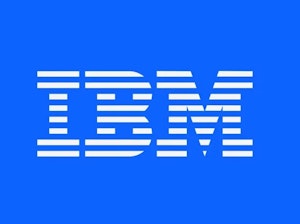Suppose you’re interested in embarking on a career spent harnessing the power of machine learning to develop exciting new methods and techniques of data analytics. In that case, you might be considering entry-level data science positions. And who could blame you: with the US data science job market expected to grow by 36% over the next decade, over 7x the anticipated growth rate of the US job market as a whole, and salaries averaging around $82,000, well above the US median annual wage in the US of $45,760, an entry-level data science position is a perfect first step to a rewarding career.
But suppose you’ve already researched these positions. In that case, you’ve probably encountered an age-old dilemma: recruiters and hiring managers for these entry-level positions are interested in candidates who can demonstrate work experience, sometimes even 1 to 2 years. Often, a capstone project, college degree, or bootcamp certificate isn’t enough to extract yourself from this Kafkaesque chicken-and-egg scenario.
Thankfully, there is something that can: a data science internship. Below, we’ll dive into everything you need about these exciting opportunities that can take you one step closer to your first data science gig.
What’s a data science internship?
Data science internships are geared towards individuals in the process of an educational program in data science or a related discipline or who’ve recently completed an educational program. While some companies hire students as interns who are amid a data science bootcamp or bachelor’s degree data science program, others want their internships to be current data science master’s or Ph.D. candidates. While summer internships are common, year- or semester-long internships are also available.
You’re immersed in a company’s day-to-day as a data science intern. Working on one or several teams during your internship, you’ll complete tasks matched to your current skill level and receive mentorship to help you level up. Potential tasks include dashboard creation and maintenance, debugging, documentation writing, data pipeline creation, and analytics.
While in other industries, many internships are unpaid — a controversial business practice, to say the least — the good news is that most data science interns receive monetary compensation in addition to college credit and the other non-pecuniary benefits they offer. Some interns, especially those at big tech companies, are paid quite handsomely: at Amazon, for example, a summer intern can expect to earn around $55.38 per hour. Often, internships at these kinds of companies can turn into permanent positions. Understandably, competition for these opportunities is fierce, with some even seeing thousands of qualified applicants.
What skills do you cultivate in a data science internship?
Each data science internship is different in terms of the skills it requires applicants to have at the time of application and the skills it provides the opportunity to develop. As a general rule, the skills cultivated in a data science internship include skills in:
Computer science: programming languages like SQL, Python, and R; software engineering; data management, including big data management
Applied mathematics: statistical analysis; probability; linear algebra
Machine learning: machine learning model design; techniques like regression and decision trees; advanced areas like natural language processing and deep learning; tools like Pandas and other machine learning libraries
Data visualization: dashboards and other visualizations using tools like Tableau
Industry-specific knowledge and techniques
What career paths can a data science internship prepare you for?
A data science internship will best serve the aspiring data scientist, but it can also prepare you for several other careers, including:
Software engineer
Software developer
Artificial intelligence engineer
Machine learning engineer
You can find more on these positions in our articles on data science, data analytics, and business analytics careers.




